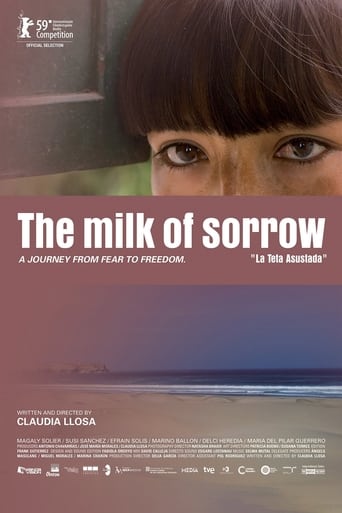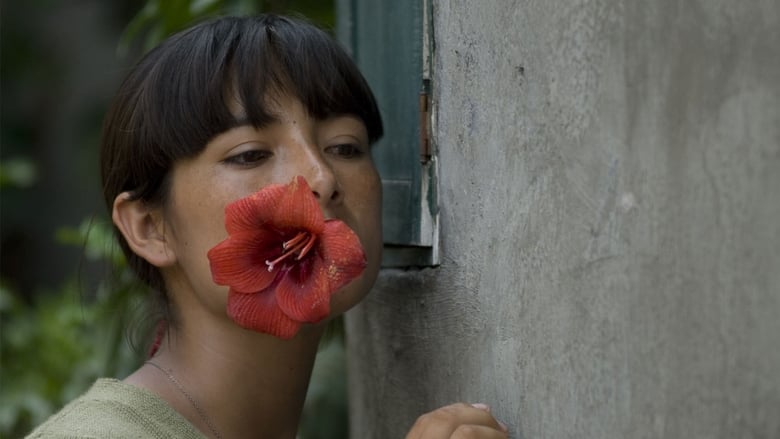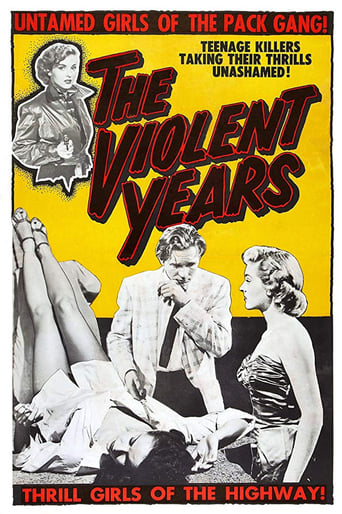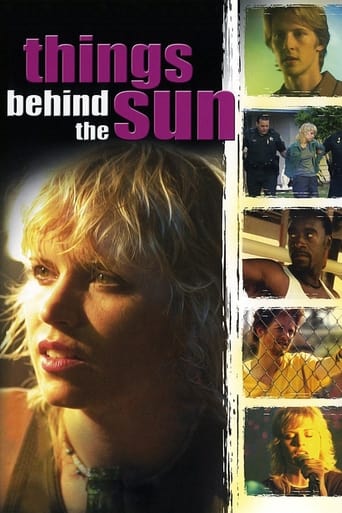

The Milk of Sorrow (2010)
Fausta is suffering from a rare disease called the Milk of Sorrow, which is transmitted through the breast milk of pregnant women who were abused or raped during or soon after pregnancy. While living in constant fear and confusion due to this disease, she must face the sudden death of her mother. She chooses to take drastic measures to not follow in her mother's footsteps.
Watch Trailer
Cast


Similar titles
Reviews
In truth, there is barely enough story here to make a film.
To all those who have watched it: I hope you enjoyed it as much as I do.
The film may be flawed, but its message is not.
All of these films share one commonality, that being a kind of emotional center that humanizes a cast of monsters.
La teta asustada is no action-packed thriller by any stretch of the imagination. But it is an emotional documentation of the saddening story of Fausta, an indigenous Peruvian woman who lives with her mother next to her aunt, uncle, and cousins.Throughout the movie, Fausta is subjected to a multitude of hardships, beginning with the death of her mother. The film begins with a somber song sung by Fausta mother that recounts her rape and contraception of Fausta during the time of terrorism in the hillcountry of Peru. Because Fausta's mother lived during this time, it was believed by the people in their village that Fausta was contaminated with the disease "la teta asustada," or "the milk of sorrow." The disease affected those who were nursed by women affected by the horrific events during that often-forgotten time in Peruvian history.While Fausta's believed diagnosis of "la teta asustada" is the cause for a lot discrimination against her, we also see the difference in rich and poor culture when she begins working for wealthy family in the city. Her relationship with the woman for whom she is working is strained and often times uncomfortable, but she finds solace in her relationship with the gardener. A speaker of her native Quechua, the gardener provides a needed sense of home in the bigger city, where she feels very out of place and at many times antagonized. This feeling ultimately culminates in Fausta's boss letting her go on the side of street after they attended a show in Lima where the woman performed one of Fausta's songs. We ultimately see many intersections of culture in Fausta throughout the movie. Almost all of which resulting in some form of criticism or hardship. This aggregation of misjustice is accentuated by the melancholy tone of the film, as well as the overall theme presented.
La teta asustada is less of an imitation of any known cinematic style or mode of storytelling and more of an evocation of the feelings of helplessness, confusion, and injustice stemming from Peru's turbulent period of violence between the 1980s and 2000s as El Sendero Luminoso clashed with the government. An understanding of this history is necessary to appreciate and grasp the meaning of Fausta's sickness, la teta asustada, especially where the film provokes memories of that period through Fausta's struggles as a member of an indigenous Peruvian culture.There's a lot of raw, suppressed emotion just barely revealed through each scene's subtleties, often played against the forthrightness of Fausta's mother singing about her rape and hope for a better life, and Fausta herself recites songs from her culture in the face of a modern oppressor, hearkening back to Peru's violent past. Those injustices are reevoked by Fausta's employer, to whom she is a servant, by her promising Fausta pearls if she sings—though this seems more like coercion—and she then steals her cultural songs.Audiences might find some distaste or a strong sense of confusion at hearing about Fausta's method of preventing rape using a potato—forced on her by a neighbor when she was a child, no less. The anxiety of this being the reality haunts the viewer in the same way that la teta asustada haunts Fausta. Remorse and tension also arise when it's clear that Fausta's mother's mummified remains have been kept in the house in lieu of a proper burial. Though belief that the significance lies again with Peru's history, the film leaves much more to interpretation. In truth, it could have very little to do with El Sendero Luminoso, but the fact that Fausta is cursed by la teta asustada suggests otherwise.La teta asustada is not clear about its own meaning, and perhaps that's for the better. To be indirect about an obvious fact may emphasize the directness of the commentary on it, so the director's decision to keep things vague yet well-established in a world of social inequity may entice viewers to recognize past happenings that were once kept secret. Being aesthetically pleasing—though in an off-putting way—but not very plot-driven, it is enjoyable with the expectation that it will, essentially, not be enjoyable or exciting.
I couldn't believe that my review about this pitifully bad movie has been deleted by the THIRD TIME! by some outraged viewer that may only be the director herself or some neighbor of hers back in Lima, Perú.I'm really flattered.How can someone be as blind and narrow minded as to pretend that this is cinema, that this is A MOVIE...I never saw anything as mediocre and senseless as this so called PICTURE.The funny thing is that whoever deleted my comments only shows how terrified he/she is from any kind of criticism that could differ from his/her own. Never in my life I had dared to delete anybody's comments since I'm not the possessor of the only truth. I've always assumed that others may think quite differently and I accept that, since a different point of view may be offering me some new knowledge and I'm thankful for it.Many very long reviews explain exceedingly well, in minute detail, the story, the characters and what this movie is all about (not that much really). My review wasn't disrespectful or used forbidden words, since I only depicted the reality of Peruvians similar to the ones shown in this movie, and other Southamericans from the same social environment living in Buenos Aires, Argentina, where they came in search of greener fields and where very few of them found them.It seems that my censor didn't like my depiction of these people. Well, too bad, because just by going to the places that I mentioned anybody can see the sad reality of this marginal kind of living.But OK, since obviously Democracy and Freedom of Speech is just a figurative way of speaking, let's leave aside the social situation of certain social groups and let's talk about this movie...I couldn't stand more than half an hour of this contraption and just to check if I missed anything at all, I went full speed, stopping here and there to see the quality of the material, but the material never changed... to the bitter end... yes Sir..., I got to the very end of this... movie.Bad Camera work, bad direction, bad acting, bad everything.A pitiful waste of time (mine).
Fausta, the main character of "La teta asustada", has the disadvantages of being a woman, an Indian, and poor, in a society that in its essence is not too different from others in any corner of the world, no matter what the intelligentsia or UNESCO may say about social, economic, ethnic or gender vindication in the past century. Fastua's mother raised her according to quechua tradition and convinced her that she was infected with a disease called "the frightened tit", as a result of the mother being raped while carrying Fausta in her womb, and because she fed Fausta with her poisonous milk. Although she is very beautiful, the young Fausta has grown into a men-hating, always frightened, and laconic woman. She is also sick, because she has found a most revolting way to avoid rape. In part, the fact that Claudia Llosa belongs to the privileged, white (or not-Indian) sector of Peruvian society, works against her work, and a few of the incidences seem too foreign to her appreciation. Luckily, she slowly develops the story in settings and circumstances that do not seem completely real. Although based on facts, much of the action belongs to the realm of fantasy. You don't have to be a woman, an Indian or poor to appreciate this film (though it would help). It just takes a bit of sensibility and compassion. A good, necessary film.









